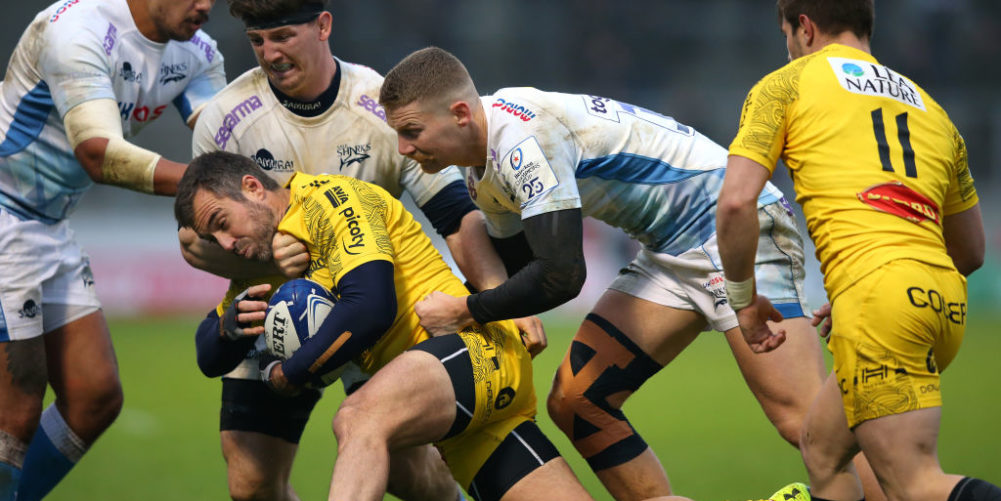On the first weekend of January this year in the foothills of the Pyrenees, the visitors made a tactical change then of such insignificance that it vanished into the minutiae of just another Saturday.
Word of La Rochelle‘s decision to substitute one fly-half for another towards the end of a runaway win at Pau on January 4 would have wound up on the technological spike reserved for trash of the ‘So What?’ category. Time and tide wait for no man.
Viewed through the prism of a world tied to the ball-and-chain of Covid-19, it can be seen now in a very different light.
Nobody had any way of knowing back then that the oldest No. 10 of the professional era was leaving the bench for the last time, that fate in the deadly form of a pandemic would conspire to end a run of almost 20 years in the dead of winter when he just might have made it to another Top 14 finale in high summer.
Brock James, his hair flecked with grey, kicked off his 39th year by replacing Jules Plisson in the last quarter which, allowing for stoppage time, gave him 17 minutes, long enough for one shot at the posts. A conversion towards the end of a one-sided match would hardly have merited a mention.
Four months later it can be seen as a fairly big deal. The goal was the 1,190th of James’ career. So what? The longest-lasting fly-half in the game was making his last stand, that’s what.
This season, his 14th in France, 16th as a full-time professional and 19th since starting at Sydney University, was always going to be his last except nobody envisaged its abandonment with nine matches left.
President Macron’s decree extending the ban on mass gatherings until September ended any hope of La Rochelle making the play-offs under Ronan O’Gara.
My records put James twelfth on the all-time list of goalkickers who have amassed more than 3,180 points since the game went open 25 years ago. The list is headed by Jonny Wilkinson with O’Gara second, Stephen Jones third, Dan Carter fourth and Charlie Hodgson fifth. It also includes two Frenchmen (Dimitri Yachvili, David Skrela), a South African still adding to his total (Morne Steyn), another English ten (Andy Goode) followed by two Kiwis (Nick Evans, Jimmy Gopperth).
Even in such exalted company, James stands out for a reason which has nothing to do with his longevity. He, alone of the twelve, had to cope with demoralising rejections during the early days, in his case in Australia which explained why he first sprang to notice on the far side of the Tasman with Taranaki.
Back home in 2006 with the newly-formed Western Force after a brief stint with the Reds in Brisbane, James suffered another setback from the Perth franchise’s coach, ex-All Black John Mitchell now with England.
“He told me I was the fifth No.10,” James said. “And that I wouldn’t even play in friendlies.”
He took off for France and lasted longer than any other import in the Top 14, thriving in the most attritional of tournaments. He paid his dues with Clermont, most painfully during three consecutive losing French finals with the Michelin Men.
James finishes as he started, uncapped which is more Australia’s loss than his. The nearest he got to a Test match was in Cardiff nine years ago, when Wales ludicrously doled out caps for an end-of-season fixture against the Barbarians which James helped turn into an away win.
That he has no regrets almost goes without saying.























